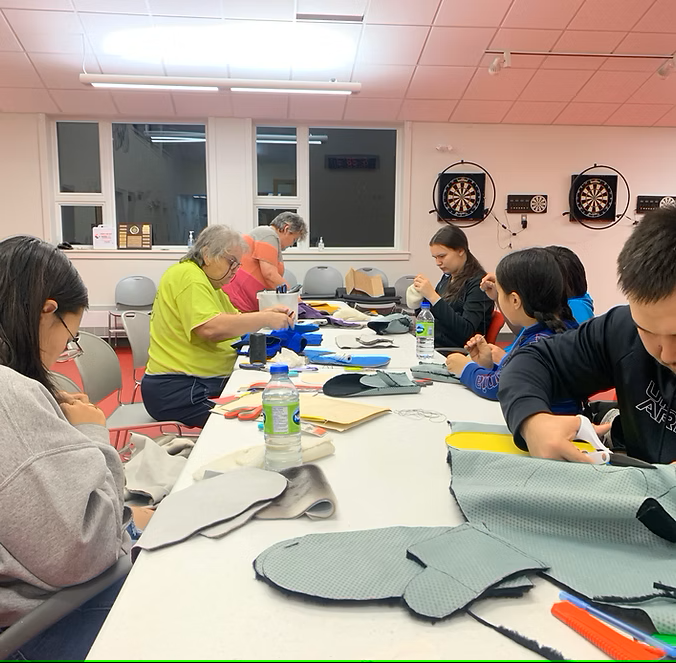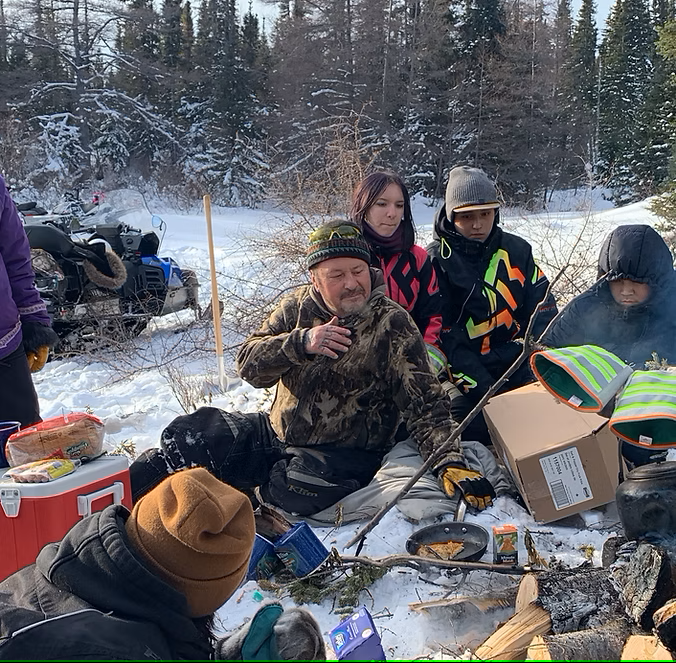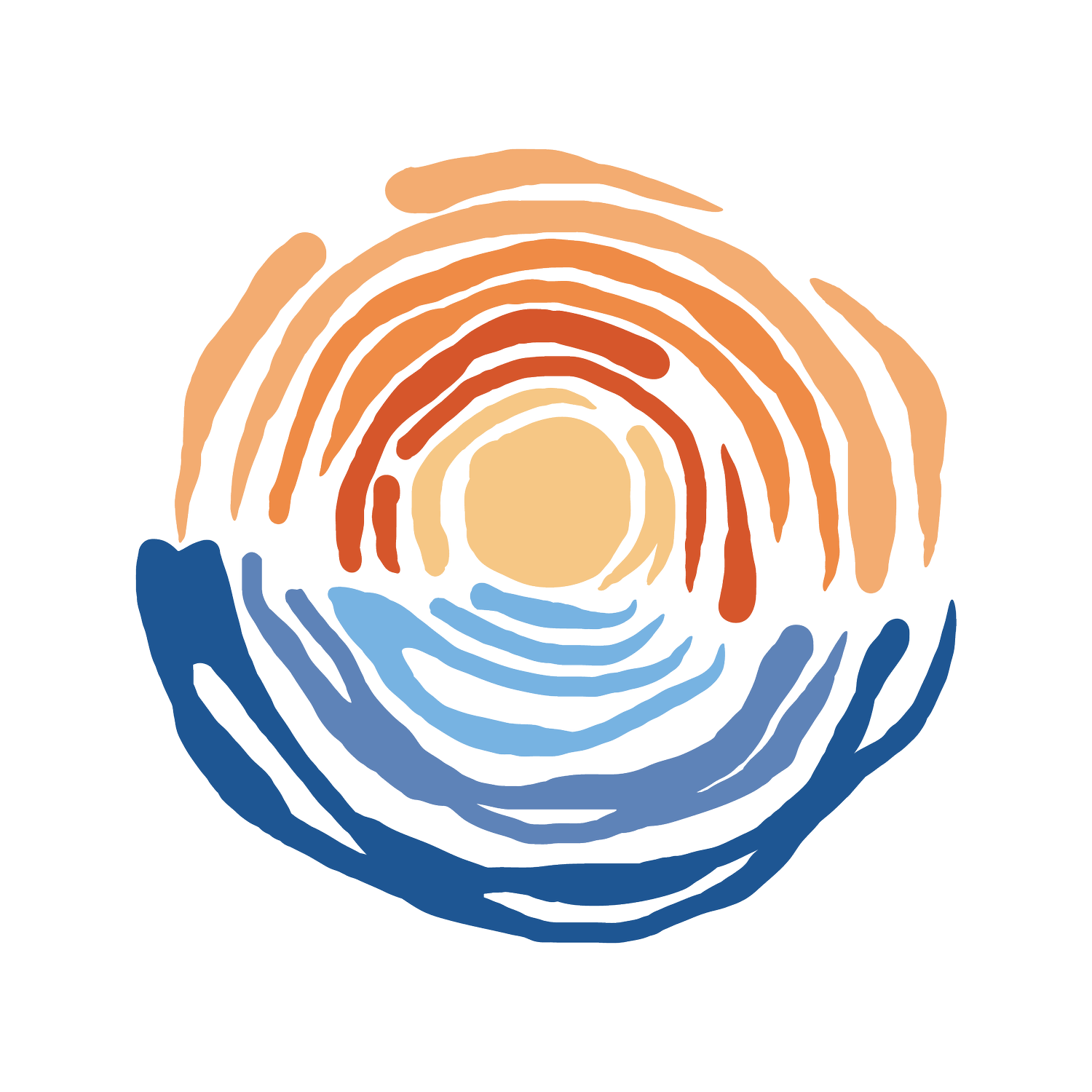
iWELL Project
What is the iWell Project?
The Inuit Wellbeing and Learning from the Land (iWELL) is a community-based research project that explores how culture-based and land-based intergenerational teaching and learning experiences of wildlife contribute to Inuit youth self-concept and positive mental wellness in the Nunatsiavut region of Labrador, Canada. To explore this question, the iWELL project has two main pillars:
Facilitating culture-based and land-based intergenerational learning experiences for youth, and
Researching these same experiences and how they influence youth self-concept and positive mental wellness.
Inuit in Nunatsiavut have relied on the lands, waters, and ice for centuries for food and transportation. These land-based activities have become synonymous with Inuit culture and livelihoods and is one of the primary pathways that Inuit knowledge is passed on to future generations. This research is grounded in the social determinants of health and, more specifically, Inuit social determinants of health. The non-medical factors that influence health outcomes in Nunatsiavut are unique because Inuit are born, grow, work, live, and age in a unique environment and culture that presents a different daily life from other Indigenous societies and non-Indigenous settings. This research supports Inuit-specific understandings of well-being to achieve better health outcomes. This research is also grounded in the belief that Health in All Policies (HiAP) will achieve better health outcomes in society by considering the health implications of approaches to wildlife management and avoiding harmful health impacts to avoid health inequities (World Health Organization, 2014).
The research will highlight youth wellness, as a form of HiAP, through the connection and collaboration of the education and wildlife public sectors. Using a multi-generational approach, we will provide evidence on the ways in which cultural teachings and the intergenerational transmission of land-based knowledge are important for the positive self-concept and overall well-being of young Inuit who live at the nexus of a modern and a traditional world. This project will contribute to the Nunatsiavut Government’s work in developing Inuit-centered curriculum, align with the broader long-term vision of Inuit self-determination in education, support self-government implementation, and promote Inuit health and well-being by acknowledging these essential social determinants of health and encouraging cross-departmental policy-making that centers long-term Inuit well-being.
Meet the Project Team
-

Jamie Snook
Jamie Snook is the Executive Director of the Torngat Wildlife Plants and Fisheries Secretariat, responsible for implementing sections of the Labrador Inuit Land Claims Agreement that focus on wildlife and commercial fisheries. He is a proud Labradorian with Inuit and British ancestries and a member of the NunatuKavut Community Council. Jamie completed a PhD in Public Health at the University of Guelph, working with the Secretariat to understand and examine the ways in which fish and wildlife co-management impacts Inuit health and well-being.
-

Colleen Pottle
Colleen Pottle is an Inuk from Makkovik, Nunatsiavut, and an elementary educator. She holds a Bachelor of Native and Northern Education, a Master of Education, and is completing a Graduate Diploma in Arctic and Subarctic Futures. Colleen is also a part-time employee of the Torngat Secretariat, working in Indigenous curriculum and research. Colleen is passionate about improving the health and well-being of First Nations, Inuit, and Métis Peoples.
-

Sylvia Moore
Sylvia Moore is a mental health professional, associate professor at the School of Arctic and Subarctic Studies. She is the Labrador Research Lead for the National Centre for Collaboration in Indigenous Education and a member of the Thematic Network for Teacher Development, Diversity, and Social Justice. Sylvia's community-led research is in the areas of Indigenous self-determination, wellness, and decolonizing education. She authored Trickster Chases the Tale of Education, a case study of working with Wild Cat First Nation.
-

Ola Andersen
Ola Andersen spent 29 years in the education system and holds a B. Ed and M. Ed. Ola is currently working towards a PhD in Arctic and Subarctic Futures. Ola recently joined the Torngat Wildlife Plants and Fisheries Secretariat as the Stewardship and Education Project Coordinator. Ola is from Makkovik, Nunatsiavut, and enjoys all aspects of Inuit culture including fishing, hunting partridges, and producing Inuit themed crafts.
-

David Borish
David Borish is a social and health researcher and visual artist pushing the boundaries of using audio-visual methodologies to explore and understand relationships between humans and the environment. His work sits at the interface of documentary film, public health, cultural and social wellbeing, wildlife conservation, and audio-visual research methods. Through his PhD, Borish was the director of HERD, a research-based documentary film all about a 99% decline of a caribou population and what that means for community well-being in Labrador, Canada. The film has been broadcasted on CBC in Canada, has been screened at more than 15 international film festivals. David has also worked as a youth instructor for the Harvard Youth Summit on Climate, Equity and Health, and as a visual educator for National Geographic Student Expeditions in Iceland and Alaska. With the iWELL project, Borish will be supporting with research, analysis, and visual storytelling dimensions of exploring how culture-based learning experiences of wildlife contribute to Inuit youth self-concept and positive mental wellness.





